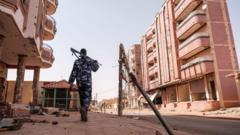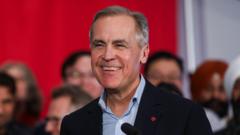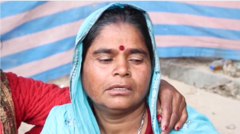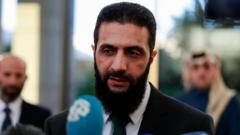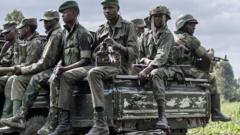In a groundbreaking interview, rebel leader Ahmed al-Sharaa revealed that holding new elections in Syria may take up to four years, marking a pivotal moment in the country's political landscape. Speaking to Saudi state broadcaster Al Arabiya, al-Sharaa outlined a timeline for essential reforms following the recent overthrow of former President Bashar al-Assad. He indicated that drafting a new constitution could take three years, while noticeable improvements in public services might not manifest for another year.
Syria's Rebel Leader Outlines Election Timeline Amidst Ongoing Turmoil

Syria's Rebel Leader Outlines Election Timeline Amidst Ongoing Turmoil
Syria's new governing authority faces a significant challenge as it seeks to navigate a path toward democracy.
Al-Sharaa, formerly known as Abu Mohammed al-Jolani and now at the helm of Hayat Tahrir al-Sham (HTS), acknowledged the need for a comprehensive population census to ensure legitimate elections. His comments come in the wake of HTS's ascent to power, raising questions over how the diverse, multi-ethnic nation will be governed. Historically a jihadist organization, HTS has attempted to shed its past militant associations, but has faced skepticism about its leadership capabilities.
In light of a planned national dialogue conference, al-Sharaa asserted that HTS would be "dissolved," though details were sparse. This conference poses a crucial test for the new leadership's ability to fulfill promises of unity after years of devastating civil war. Furthermore, amidst his efforts to secure rights for minorities, nearly 300 arrests have been made targeting Assad loyalists, contributing to the tension as the country tries to regroup.
The Syrian landscape is now diverse, comprising various ethnic and religious groups, and al-Sharaa stresses the importance of safeguarding minority rights moving forward. As the nation grapples with its fractured past, the transition towards a more democratic governance remains fraught with challenges, yet pivotal for Syria's future.
In light of a planned national dialogue conference, al-Sharaa asserted that HTS would be "dissolved," though details were sparse. This conference poses a crucial test for the new leadership's ability to fulfill promises of unity after years of devastating civil war. Furthermore, amidst his efforts to secure rights for minorities, nearly 300 arrests have been made targeting Assad loyalists, contributing to the tension as the country tries to regroup.
The Syrian landscape is now diverse, comprising various ethnic and religious groups, and al-Sharaa stresses the importance of safeguarding minority rights moving forward. As the nation grapples with its fractured past, the transition towards a more democratic governance remains fraught with challenges, yet pivotal for Syria's future.

